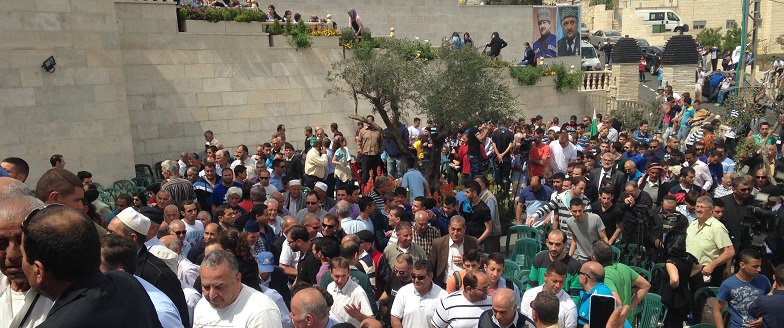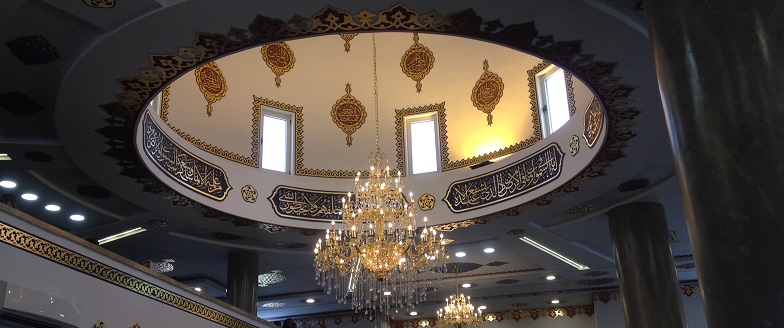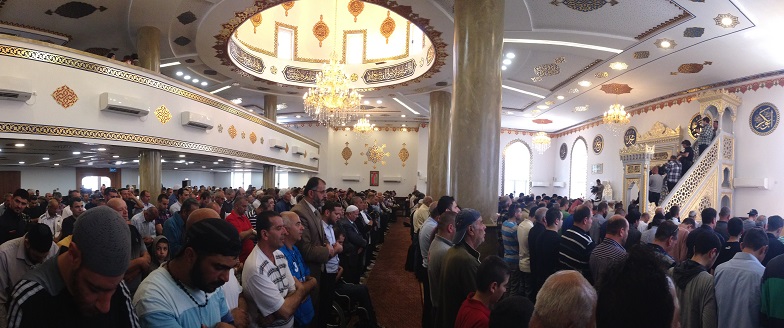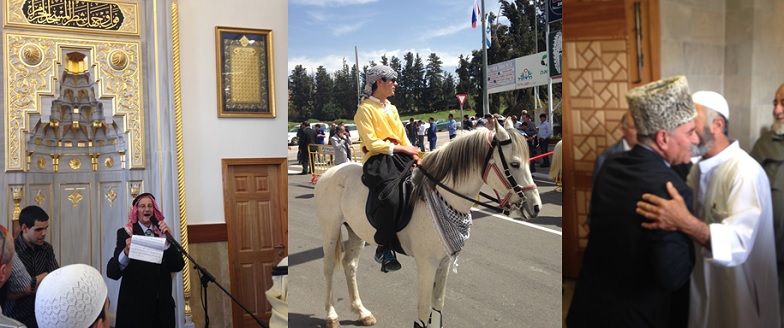







The new mosque of the Arab village of Abu Ghosh, several kilometers due west of Jerusalem, was inaugurated on March 23rd, 2014. The people of Abu Ghosh claim that their mosque is the second largest in Israel, only smaller than Al-Aqsa mosque in Jerusalem (aka, Haram al-Sharif). The construction of the mosque was funded mostly by the government of the Chechen Republic, while the lot itself, 3.5 dunams (0.86 acres), was donated by the Israel Land Authority.
The mosque is built in an Ottoman-Turkish style and the interior decorations are Chechen-influenced. It also features four minarets and a golden dome, making it the only mosque of its kind in Israel.
The mosque is originally a private initiative of the village's residents who looked for an appropriate place for worship. However, its construction was halted in 2010, only a year after it had begun, due to lack of funds. At that stage a Chechen-born Jew, Arkadi Gaydamak, mediated between the former head of the village's council and government officials of Chechnya, who eventually agreed to finance the construction until completion of the project. As a gesture of honor the mosque was named after the first president of Chechnya, Ahmed Hajji Kadyrov. Currently it is also known as the Mosque of Peace, but other names are in vogue such as the big mosque, or the new mosque.
President of Chechnya Ramazan Kadyrov and the current head of Abu Ghosh council Isa Jaber hold the project as a renewal of the long-forgotten historic ties between the Abu Ghosh villagers and their original homeland, Chechnya. A rather obsucre and unfounded historical fact but still prevails among villagers nowadays.
Our current plan and goals are to follow the development of the mosque in order to find out how it affects religious and national characters of the village and its inhabitants. Another aspect we intend to examine is the image of the villagers in the eyes of the citizens of Israel, Arabs and Jews alike, as a result of the opening of the mosque.
Lior Chen and Chen Reuveni
The new mosque's inauguration ceremony that took place on March 23rd, 2014